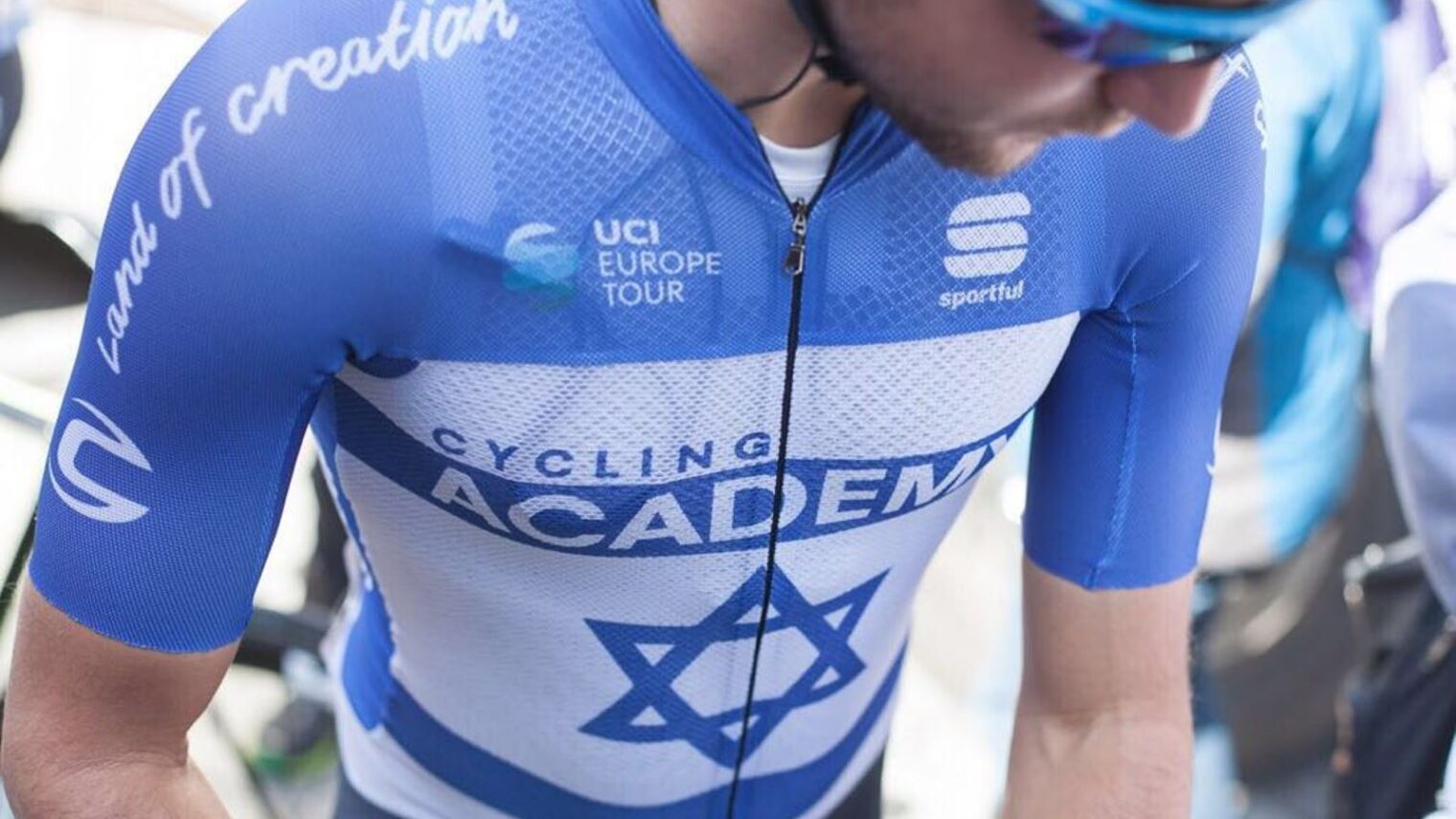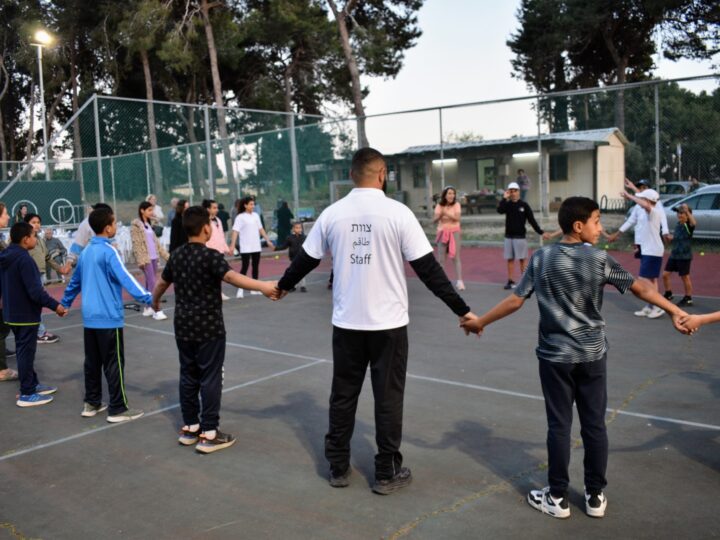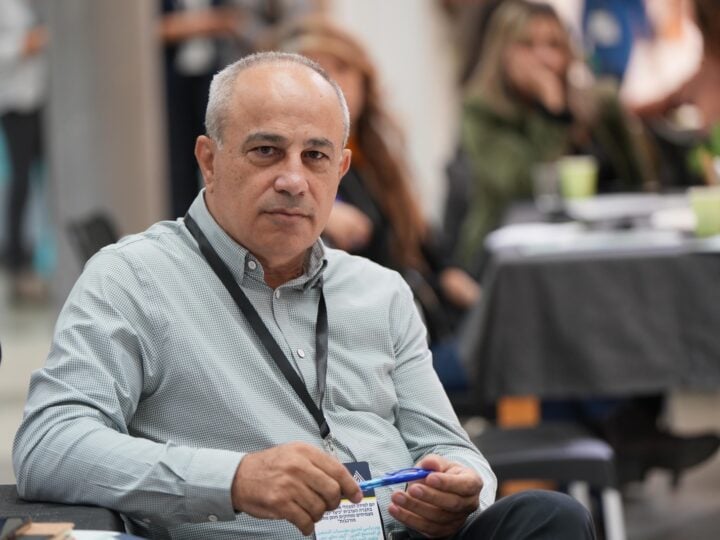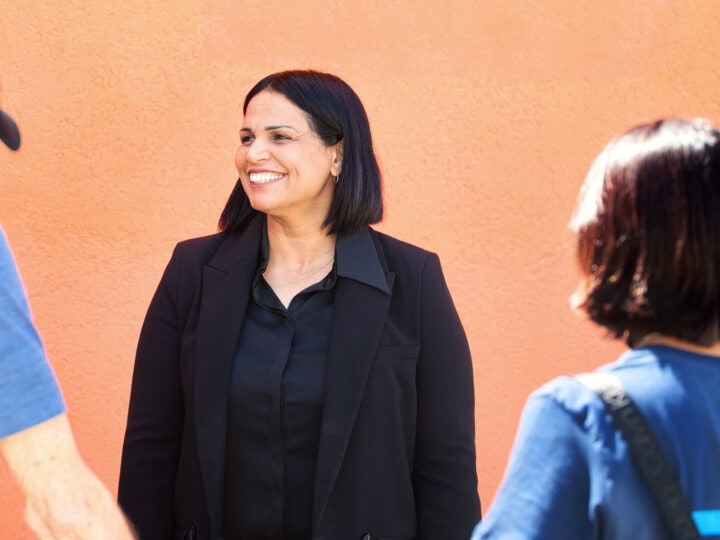All 24 members of the Israel Cycling Academy national bike team wear the same black, blue and white uniform designed by Israeli pop star Ivri Lider. Yet the teammates comprising the 2018 roster hail from 16 countries and include five Jews, one Muslim, one Druze and 18 Christians.
The amazing diversity of languages and cultures occasionally makes for a bumpy ride.
“Yes, they are a barrier, but we like challenges,” says team manager Ran Margaliot with a laugh. “We are a melting pot — a team of everyone, just like the state of Israel. We believe that sports connect people and reach their hearts.”
The nonprofit Israel Cycling Academy was founded in December 2014 on a basis of social values. Its founders, members and support staffers earned the designation of Peres Center Ambassadors for Peace on November 16, 2017 at a ceremony in Jaffa.
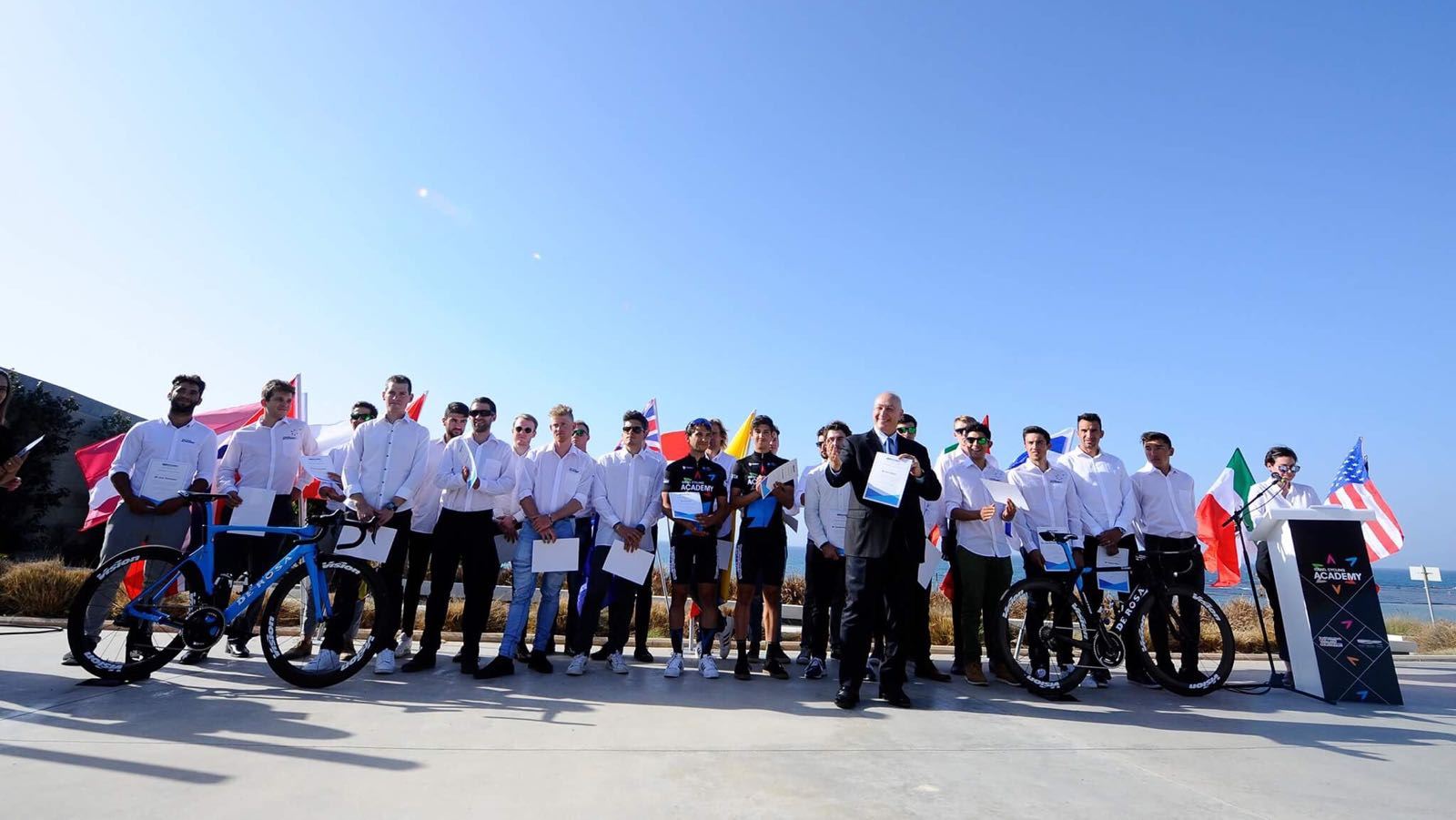
Chemi Peres, chairman of the Peres Center for Peace and Innovation, said sport is an international language.
“It does not matter if you speak English, Hebrew or Turkish – everyone has a place and a role to play. Athletes have the power to be ambassadors for peace, and to serve as role models for the younger generation,” Peres said.
Gearing up for Giro d’Italia
On the 2018 roster are four current national champions: Israel’s Roy Goldstein, Spain’s Ruben Plaza, Italy’s Kristian Sbaragli and Turkish National Time Trial cycling 2017 winner Ahmet Örken.
Eight members (at least one of them Israeli) will be chosen to compete in the three-week Giro d’Italia in May. It’ll be the first time the major road race, second in significance only to the Tour de France, will be rolling through Israel (or anywhere else outside of Europe for that matter) and the first time Israelis will participate.
“Giro is a huge goal for us,” says Margaliot. “We can become local heroes.”
“The fact that a Turkish cyclist is competing side by side with Israeli cyclists and others from around the world, and striving together for victory, sends a message of coexistence and peace to all.”
However, because so little is local about this multinational bike squad with its logistical headquarters in Girona, Spain, post-season bonding camps are held annually for the diverse group. The men spend two days together in Girona and five days touring and training in Israel.
At the end of the November bonding camp, a new member from Europe confided in Margaliot that he’d been hesitant to join the team because his mother is active in an organization hostile to Israel. Spending five intensive days in Israel made his hesitations disappear.
“One of the beautiful things about sports is that this kind of guy would not otherwise come to have a more neutral opinion on Israel,” says Margaliot. “We don’t want to be controversial or political. We just hope that by having great achievements we can inspire more people.”
Riding across continents
The 2017 season, running from January to October, was the Israel Cycling Academy’s first in the Pro Continental ranks. Riders competed in races across the world, from Australia to Argentina, Colombia to Spain.
Margaliot explains that many of the foreign teammates were chosen in order to give promising riders a chance to shine that they couldn’t get in their native countries.
“For me, the opportunity to ride in the Israel Cycling Academy is a great honor and a major professional challenge,” said Örken, who is learning Hebrew. “No Turkish cyclist has ever raced for a team at this level.
“But beyond this, we have the opportunity to excite and inspire people, and to change the world around us. The fact that a Turkish cyclist is competing side by side with Israeli cyclists and others from around the world, and striving together for victory, sends a message of coexistence and peace to all,” he said at the Peres Center ceremony.
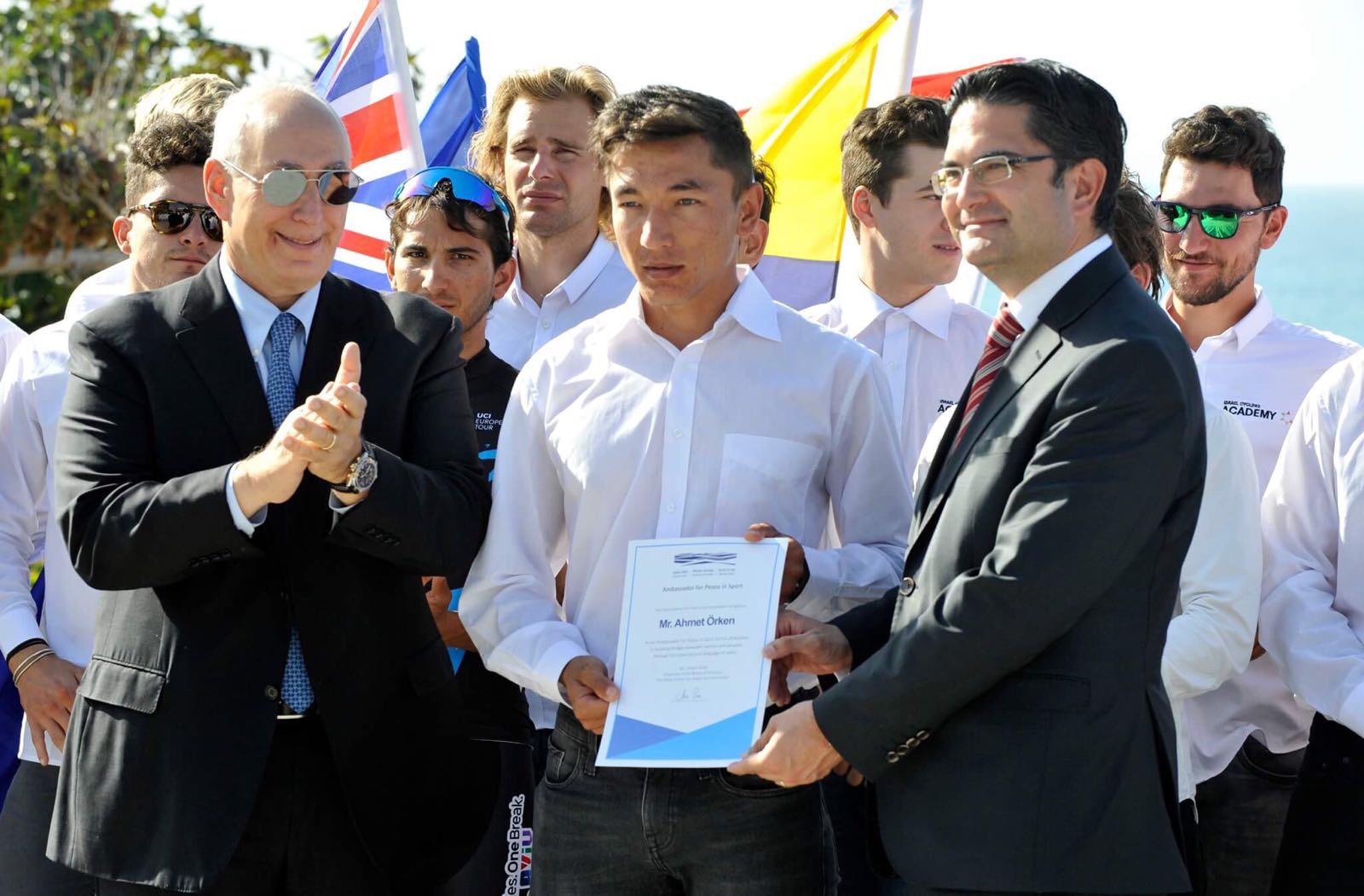
The number of nationalities represented on the Israeli Cycling Academy is actually 22, Margaliot explains, when you count in the 41 support staff members from trainers to technicians.
The team gets support from the Israel Ministry of Tourism, corporate sponsors including De Rosa road-racing bikes of Italy, and especially from its founder-owners, Sylvan Adams and Roni Baron.
Adams, whose cycling achievements include six Canadian titles and a World Master’s championship, moved to Israel from Montreal in December 2015 and is building Israel’s first velodrome (an arena for track cycling) in Tel Aviv.
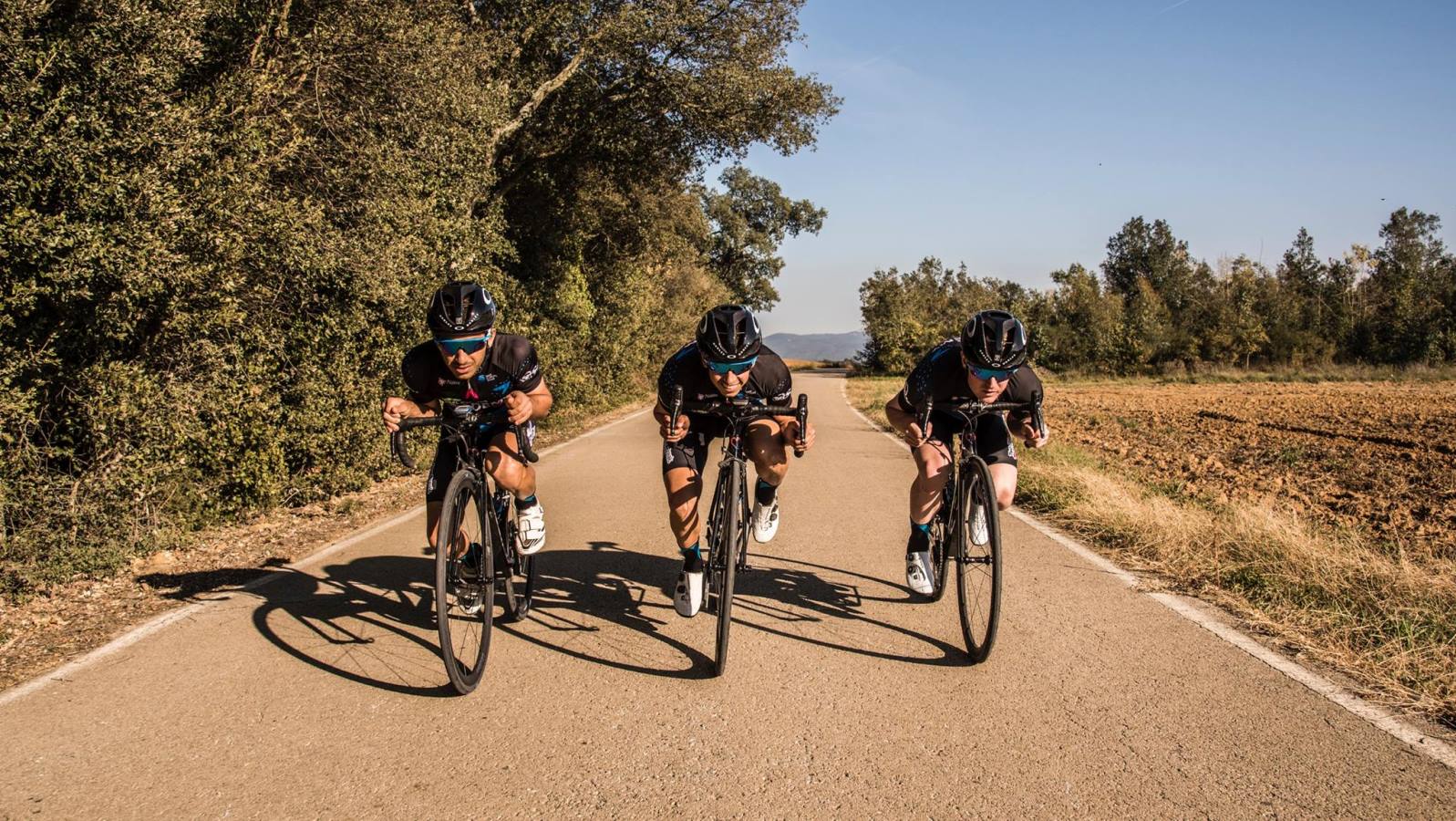
“The vision and main goal of the team is to instill a love of cycling among young Israelis from all backgrounds,” said Baron at the Peres Center in November.
“Just yesterday, the team announced the signing of an 18-year-old Druze cyclist, Sanad Abu Faris, to our youth team. We believe that in the not-too-distant future, the Academy will also include [Israeli] Arab and Palestinian riders. That is what we are aiming towards.”
The Israel Cycling Academy 2018 roster includes Zak Dempster and Nathan Earle of Australia; Ben Hermans of Belgium; Guillaume Boivin and Ben Perry of Canada; Edwin Alvila of Colombia; Daniel Turek of Czech Republic; Mihkel Raim of Estonia; Guy Sagiv, Roy Goldstein, Aviv Yechezkel, Omer Goldstein and Guy Niv of Israel; Kristian Sbaragli of Italy; Krists Neilands of Latvia; Luis Lemus of Mexico; Dennis van Winden of The Netherlands; Hamish Schreurs of New Zealand; Sondre Holst Enger and August Jensen of Norway; Jose Manuel Diaz and Ruben Plaza of Spain; Ahmet Örken of Turkey and Tyler Williams of the United States.




